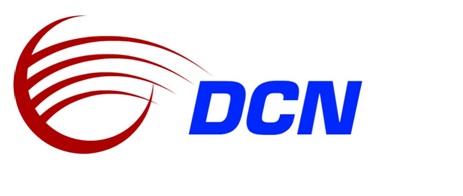It’s tax season again. Many companies approach tax season with trepidation, seeing it as a minefield of ever-changing regulations.
Some of the most common worries surround worker classification and the use of the right version of Form 1099. Here are our top tips to help you save time on tax reporting as well as reduce the chance of incurring penalties.
1. Correctly Classifying Employees and Independent Contractors
Knowing the difference in the working relationship between an employee and employer, versus an employer and independent contractor is important not only for a business to function, but to prevent litigation. Despite this, worker misclassification remains prevalent in the transportation industry.
Clear definitions given by the IRS state that a worker is an employee only when a business has the right to control the work performed, the employer supplies tools and other needed materials to the worker, and the duties performed by the worker are integral to the principals business.
It is federally required for a business to review and report its relationship with its worker. This is why there are harsh penalties for intentionally misclassifying employees as independent contractors when they are employees, as you are not providing the basic benefits and protections that employees are due.
After classification is determined, employees should receive W-2s while independent contractors will receive 1099s. This will establish a paper trail and serve as an official declaration of the relationship.
2. Form 1099 for Reporting Accurate Non-employee Compensation
If you work with independent contractors (non-employees), use Form 1099-NEC (Non-Employee Compensations) to report their compensation to the IRS rather than Form 1099-MISC.
The annual threshold for required reporting is $600. That means if you pay $600 or more over the course of a year to an independent contractor, you need to report that compensation to the IRS on Form 1099-NEC and send the contractor their copy as well.
3. Report any backup withholdings
There are times when an employer must withhold payment, collecting 24 percent of the amount due. This is a form of tax collection and is to ensure the government receives appropriate taxes. Since the worker has already paid tax in the form of this withholding, the employer must declare the amount, so the government does not double tax the individual. Any withheld payments or taxes must be included on the 1099 form in the backup withholdings field.
4. Get completed W-9 forms
When your company begins working with an independent contractor, have them fill out a W9 form so you have their address, name/business name, and SSN/TIN. To ensure compliance, you could withhold a part of the payment until they provide the information. This document should be kept on file for a minimum of 4 years in case of investigation by the government, or a case brought by a former worker.
5. Use the right TIN/SSN/EIN
A small business owner might miss this tax preparation step in the stress of getting taxes done, but having the right TIN/SSN/EIN is essential. If you file without verifying the TIN/SSN/EIN and the numbers turn out to be invalid, the IRS will reject your tax filing and may impose a penalty. You should have this information on each contractor on their W-9 form.
Worker Misclassification and Tax Solutions For the Transportation Industry
It is very clear that within the transportation industry the relationship between ICs and their contracting businesses needs to be clearly defined. Which is where DCN comes in!
As a transportation cooperative, we offer independent contractor’s the opportunity to buy in and become a member-owner. Once an owner, truck drivers, couriers, medical transport drivers, and all kinds of independent transportation specialists can contract their services out to various transportation businesses that utilize independent contractors.
Subscribing clients simply sign an agreement with DCN and inform us which ICs they would like to contract. As well, DCN provides numerous administrative services for our clients, putting further distance between them and the ICs they utilize. We handle insurance premium collection and renewals, member settlement processing, pay functions, and year-end 1099 processing.
Save yourself the time and headache while protecting yourself from potential litigation by partnering with DCN. Contact us today to get started!
Are you an independent contractor interested in joining DCN? Learn about our benefit programs and membership opportunities here!
